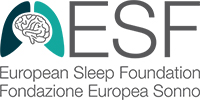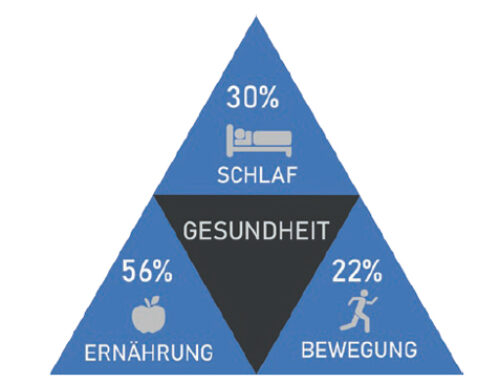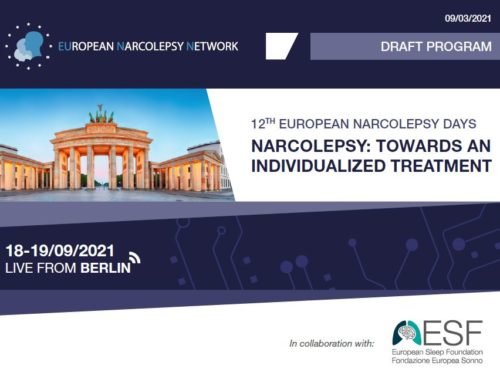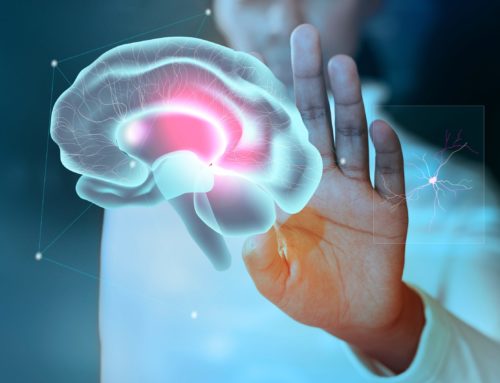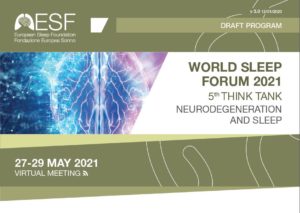
World Sleep Forum – 5th Think Tank on Neurodegeneration and Sleep
VIRTUAL MEETING | 27th-29th May 2021
The Think Tank originally scheduled in Ascona was held online due to the COVID19 pandemic. Under the direction of the European Sleep Foundation, three days of public keynote lectures and private workshops took place.
After an introductory talk by Professor Bassetti, Professor B. Lucey of Washington University in St. Louis, School of Medicine, Department of Neurology gave the first lecture open to the public. Lucey provided an initial overview of Alzheimer’s disease and explained the focus of research in recent years regarding the evolution of the disease. Specifically, he showed the results of a study showing the effects of sleep on cerebrospinal fluid (CSF). Sleep deprivation causes an increase in Ab concentration in CSF, shown through brain imaging. Professor A. Spira from the Johns Hopkins Bloomberg School of Public Health gave the second public keynote lecture. Bringing results from several studies, Spira explained the connection between dementia and sleep. The main result that has been shown is the mutual connection between neurodegenerative diseases and circadian rhythm disorders in both directions of cause and effect. Initially, sleep disorders were considered an effect of neurodegenerative diseases. With the new results in research, it is now known that sleep disorders can influence the development of neurodegenerative diseases, leading sleep to be a relevant predictor of these diseases. The last public keynote lecture of the first day was given by Professor B. Mander from the University of California, Centre for Neurology of Learning and Memory with the title local sleep and Alzheimer’s disease.
In the late afternoon, workshops began, and experts in the field discussed in groups of about 10 people, the latest scientific directions on specific topics. The coordinating professors of the different workshops took care of organizing the session by performing different types of interaction. On the first day, the workshop about sleep duration, insomnia, and other sleep and circadian disorder in Alzheimer’s diseases was carried out under the coordination of professors A. Spira and O. Franco. It was a real brainstorming session among the different participants, which was used to write one of the paragraphs of the future summary paper of the Think Tank. On the second day, the workshop coordinated by Professors A. Iranzo and C. Trenkwalder centered on REM sleep behavior disorder in parkinsonism and dementia was led directly by the coordinators who presented the latest results of their research while the audience of experts expressed feedback to scientific opinions on the topic. They discussed in-depth the difference between isolated RBD and secondary RBD (the first a priori neurodegenerative diseases and the latter a posteriori); the new terminology, isolated or idiopathic remains an open question; symptom fluctuation and progression to different neurodegenerative diseases. An important finding that has been demonstrated lies in the fact that patients with RBD and cognitive impairment are more likely to develop dementia, RBD with motor impairment are more likely to develop parkinsonism, and RBD with dysautonomia are more likely to develop multiple sclerosis atrophy. The professors also explained how RBDs, and leg movement disorders are more frequent in the second half of the night and that current clinical tools such as actigraphy have difficulty recognizing the types of movements made by the patient. It links us very well to the topic of the last workshop coordinated by Professor C. Bassetti and C. Baumann. The title new diagnostic and treatment approaches for sleep and circadian disorder in dementia well illustrates the central theme of the discussion. Following a wide debate about the latest technologies for the measurement of sleep disorders from both a clinical and a technical perspective, thanks to the intervention of experts with a technical background such as T. Nef of the ARTORG center of the University of Bern, it was possible to lay the groundwork for the drafting of the last paragraph of the ThinkTank summary article.
On Saturday, May 29 there was a general discussion carried out by the participants of all workshops aimed at the drafting of the paper. In a single virtual room, experts on sleep and neurodegeneration met to put together and define the guidelines for scientific research in this area. Finally, Sleep World Forum 2021 proved to be an interesting event where leading experts in the field of sleep and neurodegeneration converged, bringing together several major research groups across the world.

Written by
Oriella Gnarra, PhD student, Sleep-Wake-Epilepsy Center | NeuroTec, Department of Neurology, Inselspital, Bern
